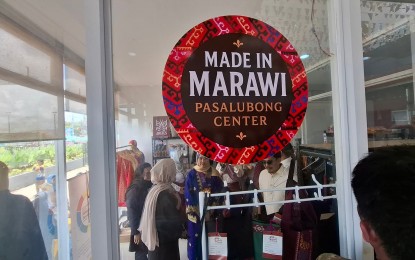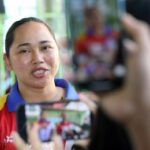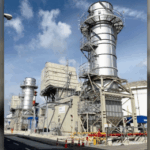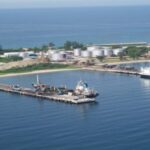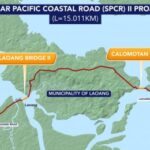CAGAYAN DE ORO CITY – The celebration of Marawi City’s Langkit Festival has become a symbol of the city’s resilient recovery and economic momentum.
A message stated that the festival is more than just a way to preserve the Meranaw weaving tradition; it also serves as a modern platform for job generation and business development.
“I envision a Langkit Festival that will one day draw people from across the Philippines and even from around the world,” it was said.
“Langkit” is the term for the vibrant, handwoven traditional textiles created by Meranaw weavers.
The local government has also supported artisans for their handicrafts and metalworks, as well as emerging small, micro and medium enterprises in the food and agri-fishery sectors.
The festival is held annually, running for more than a week.
Langkit Festival
The Langkit Festival is an annual cultural celebration in the municipality of Baras, Rizal, Philippines. It honors the town’s rich heritage of weaving “langkit” (decorative cloth strips), a traditional craft that has been a vital part of its local economy and identity for generations. The festival features vibrant street dancing, colorful costumes adorned with langkit, and exhibits that showcase this historical artistry.
Marawi City
Marawi City is the capital of Lanao del Sur and the largest Islamic city in the Philippines, historically known as the “Islamic City of Marawi.” It is the cultural center of the Maranao people and is famous for its proximity to Lake Lanao and the historic Grand Mosque. The city gained international attention in 2017 due to a five-month-long siege by militant groups that caused widespread destruction.
Mindanao State University
Mindanao State University (MSU) is a public, autonomous university system in the Philippines, established in 1961 to accelerate the region’s integration and development. It was founded with a specific mandate to foster national unity by providing quality education and serving as a cultural melting pot for the diverse peoples of Mindanao. Its main campus is located in Marawi City.
Meranaw weaving tradition
The Meranaw weaving tradition is a centuries-old art form from the Maranao people of the southern Philippines, renowned for its intricate and symbolic designs. This practice is historically centered around Lake Lanao and is most famous for producing the *malong*, a versatile tubular garment, and textiles featuring the *okir* motif, a distinctive pattern of flowing curves and arabesques. The tradition is a vital expression of Meranaw identity, spirituality, and social status, passed down through generations of female weavers.
Meranaw weavers
The Meranaw weavers are master artisans from the Lanao region of the Philippines, renowned for their intricate and sacred textile called the *landap*. Historically, this weaving tradition has been a vital part of Maranao culture for centuries, with motifs and colors signifying social status and identity. The craft is traditionally practiced by women and is considered a cherished cultural heritage.
handicrafts
Handicrafts refer to the practice of creating functional or decorative objects by hand, a tradition with roots in every ancient human civilization. This cultural heritage has been passed down through generations, often using locally sourced materials and techniques unique to specific regions. While industrialization has changed its role, handicrafts remain vital for preserving cultural identity and supporting artisan communities worldwide.
metalworks
A metalworks is an industrial facility dedicated to shaping and forming metal into objects or parts. Historically, these foundries and forges were central to the Industrial Revolution, producing everything from machinery and tools to structural components. While many traditional operations have closed, modern metalworks continue to be vital for manufacturing, construction, and custom fabrication.
agri-fishery sectors
The agri-fishery sectors are not a single place but rather a collective term for the economic activities of agriculture and fishing. These sectors have been the foundation of human civilization for millennia, providing the primary means of sustenance and economic development. Today, they remain vital for global food security, though they face modern challenges like climate change and sustainable resource management.

